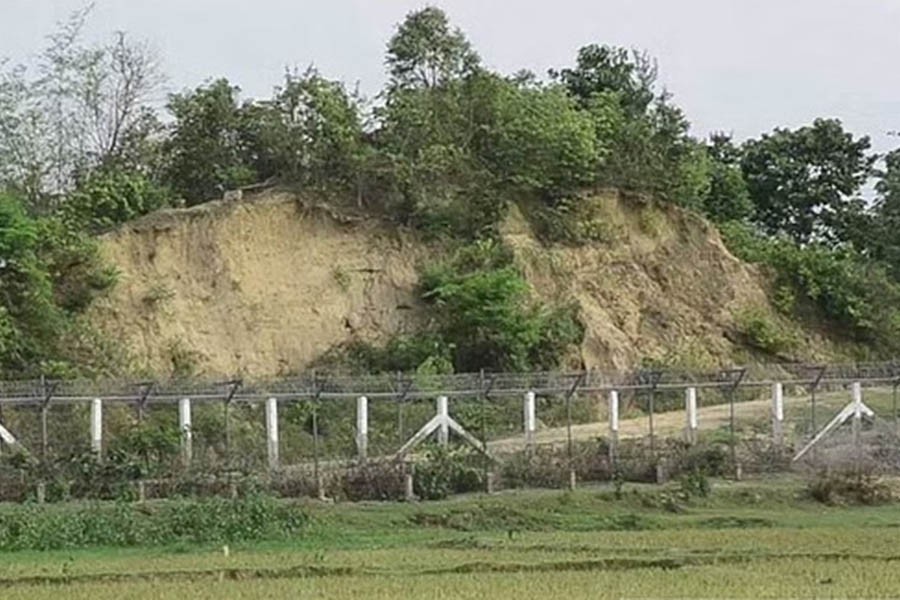
Published :
Updated :

The Myanmar authorities' failure to reciprocate Bangladesh's repeated requests to stop hostilities by their security forces at the common border between the two countries has compelled Bangladesh government to raise the issue before the international community. Accordingly, on Tuesday (September 20), Bangladesh's top foreign ministry officials in a briefing reportedly conveyed the government's concerns to the foreign diplomats stationed in Dhaka. Also, through that briefing, Bangladesh sought the international community's support and cooperation in resolving the crisis created at the border between Bangladesh and Myanmar and prevailing upon Myanmar so that the latter may refrain from disrupting regional stability. For, such instabilities, it is feared, have the potential to provide the Myanmar's military junta with an excuse to foil the process of repatriating Rohingya refugees to their ancestral homeland in Myanmar's Rakhine state.
Firing bullets and mortar shells by the Myanmar's military that hit no man's land as well as Bangladesh territory leading to injuries and death and, also, panic among local population seems to be deliberate. But Bangladesh has done nothing so far to invite such unfriendly acts from Myanmar's side. This is quite unbecoming of a next-door neighbour. Worse yet, the Myanmar government has tried to wash its hands off those violent incidents blaming those squarely on the rebel groups fighting its military in the Rakhine state bordering Bangladesh. However, despite all such provocations, Bangladesh has been showing utmost tolerance. This is because Bangladesh believes in resolving all kinds of disputes peacefully at the diplomatic level through dialogue. So, it has been keeping itself from being provoked by Myanmar's hostile activities at the border. As expected, the foreign envoys thus briefed appreciated Bangladesh's stance in the face of all provocations and assured that they would convey Bangladesh's concerns to their respective governments and see to it that the issue could be raised at the United Nations.
Such effort by the government to keep the international community posted on the recent developments at the country's border with Myanmar through diplomatic missions of the South Asian, Southeast Asian as well as other nations is eminently well-advised. At the same time, the fact that Bangladesh is also working at the bilateral level by way of keeping in touch with the Myanmar authorities is undoubtedly a wise move. Moreover, such moves on the part of the government are apt to send a clear message to the Myanmar government that despite Bangladesh's willingness to resolve its disputes with it bilaterally, the country has also kept its options open about bringing the matter up to the international community, as and when necessary. However, Bangladesh should under no circumstances play into the hands of quarters out to destabilise the region so they might fish in troubled waters. And already burdened with around 1.1 million Rohingya people living in refugee camps for over five years within its territory, Bangladesh can ill afford to engage in any kind of adventure that may make matters worse.
While taking recourse to the diplomatic manoeuvres, Bangladesh should also be careful about not showing any weakness in its dealings with its wily neighbour. In that case, Bangladesh will have to walk a tight rope between being a cooperating and a tough customer. But given the unpredictability of the situation at the Bangladesh-Myanmar border, Bangladesh will be required to be prompt at responding to the developments as they unfold. Simultaneously, the government should continue to keep the international community engaged in its efforts to resolve the crisis created at Bangladesh's border with Myanmar.


 For all latest news, follow The Financial Express Google News channel.
For all latest news, follow The Financial Express Google News channel.